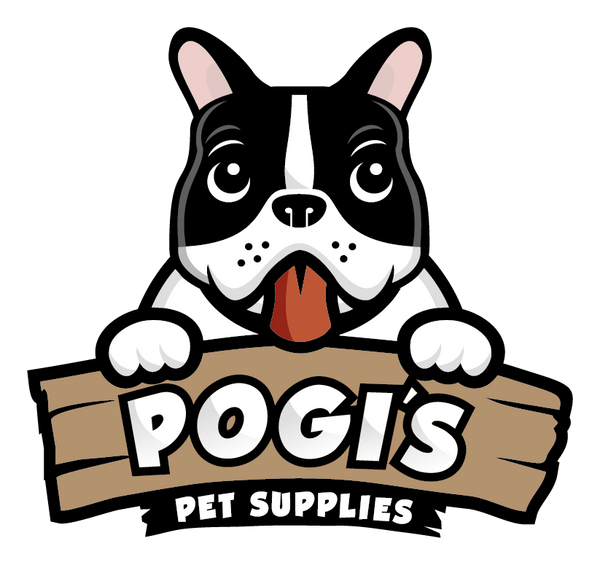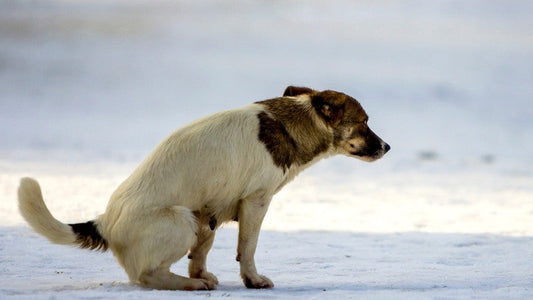Millions of dog owners reach for “biodegradable” poop bags on daily walks, convinced they are helping the planet. But here is the messy truth: many of those bags never actually disappear the way you expect. With over 300 million tons of plastic waste produced worldwide each year, plenty of so-called eco-friendly bags still end up lingering in landfills, breaking down far too slowly to make a difference.
The catch is that not all poop bags are created equal. Some are labeled biodegradable, some compostable, and others environmentally friendly, but the science behind those labels can be confusing. Are they really helping reduce dog waste or simply giving you a little peace of mind?
Stick around as we unpack what biodegradable really means, what compostable doggie bags can do differently, and how to make choices that truly benefit the planet and your pup.
Are Dog Poop Bags Biodegradable?

No, not all dog poop bags labeled “biodegradable” are truly biodegradable in the way most dog owners expect.
While the word suggests a natural return to the environment, many of these bags do not break down completely in landfills, where conditions are starved of oxygen, sunlight, and proper heat. This means that even if the packaging sounds reassuring, the full poop bags you toss in the trash may still linger for decades.
The term itself is loosely defined. “Biodegradable” simply means the material will eventually break down, but there is no guarantee of speed, safety, or completeness. In fact, the EPA has specific criteria for products making biodegradability claims, but many manufacturers use the term without meeting such standards. This lack of regulation allows bags to be marketed as eco-friendly while still acting much like traditional plastic.
To make matters worse, some biodegradable plastics only fragment into tiny pieces rather than truly decompose. These microplastics end up in soil, waterways, and even the food chain, creating new environmental problems instead of solving old ones.
Imagine grabbing what you believe are the best poop bags for your pup, only to find out later that they still leave behind plastic residue that contaminates the planet. That is why relying on “biodegradable” alone can be misleading.
Biodegradable Poop Bags Vs Pogi’s Compostable Poop Bags — Which Should You Pick?

1. Composition and Materials
It is easy to assume that every “green” label means the same thing, but the difference lies in what the bags are actually made of.
Many biodegradable poop bags still contain traditional plastics mixed with chemical additives. These additives may help the bag break apart into smaller pieces, yet they do not guarantee a clean return to the soil. What you are left with is essentially plastic in disguise, slowly fragmenting rather than fully disappearing.
Pogi’s Compostable Poop Bags take a different route. They are created entirely from plant-based materials such as cornstarch and other renewable sources, which means they are free from synthetic chemicals. Because of their natural composition, these compostable bags degrade safely, without leaving behind harmful residues that threaten soil or waterways.
Unlike standard biodegradable versions, they are certified for both home composting and commercial facilities under globally recognized standards like DIN CERTCO, ASTM D6400, and AS 5810.
The choice becomes clearer when you think about what happens after a walk with your pup. Do you want a bag that only promises to break but lingers in fragments, or one that can actually join the composting process and benefit the soil?
2. What Happens After You Toss Them?
Think about the moment after a walk with your pup. You tie up the bag, drop it in the nearest bin, and move on. But where does that bag actually go? The journey is very different depending on what kind of bag you are holding.
Many biodegradable poop bags end up in landfills, where oxygen and heat are limited. Instead of breaking down quickly, they may only fragment into microplastics, which pollute soil and waterways. In these conditions, anaerobic decomposition produces methane gas, one of the most harmful greenhouse gases.
So even when dog owners buy biodegradable poo bags in good faith, they may not actually reduce waste or protect the planet.
Pogi’s Compostable Poop Bags take a cleaner path. Made from plant-based compostable materials, they can be sent to composting facilities that accept pet waste along with food waste, cat litter, and even baby diapers. Within a few weeks, these compostable doggie bags turn into carbon dioxide, water, and nutrient-rich compost that helps restore soil and even supports vegetables in community gardens.
At home, you can carry them straight to a yard compost bin where they break down completely without leaving odor, stink, or plastic fragments behind. Instead of leaving you with a mess that lingers, these bags finish the job the way a sustainable product should.
3. Environmental Impact
Every walk with your pup leaves behind more than paw prints. The bag you choose to grab makes a lasting difference for the planet.
Biodegradable poop bags often sound promising, but many still behave like regular plastic once tossed into the trash. If they fail to decompose fully, they contribute to the same pile of waste in landfills, releasing methane and scattering microplastics into soil and waterways.
Dog owners who toss full poop bags in good faith may not realize they are adding to long-term pollution rather than solving it.
Compostable bags like Pogi’s tell a different story. Because they are made from compostable materials and plant-based ingredients, they fit naturally into sustainable waste management systems.
In composting facilities that accept pet waste, these bags break down into organic matter that can enrich soil instead of polluting it. By reducing the load on landfills and supporting community compost programs, they create real environmental benefits that stretch far beyond dog parks.
From packaging to the final bag, everything is designed with sustainability and the planet in mind.
4. Strength and Usability
Anyone who has ever carried a full poop bag on a long walk knows one thing: sturdiness matters just as much as sustainability.
Biodegradable bags often try to balance eco-claims with convenience, but many end up too thin or flimsy. They may tear when you are pulling them off the roll, let odors seep through, or fail to stand up against the weight of dog waste. In some cases, what is marketed as the best dog poop bags leaves dog owners frustrated with leaks and messes.
Pogi’s Compostable Poop Bags are built differently. Each one is extra-thick, sturdy, and completely leak-proof, giving you confidence whether you are cleaning up after a small pup or a large breed. They open easily, resist tearing, and stay strong even when carrying filled bags across the yard or to a trash bin.
Earth-friendly design here does not mean flimsy. These compostable doggie bags combine durable materials with sustainability, making every walk cleaner, more practical, and better for the planet.
How to Compost Dog Poop Bags (The Right Way)

Composting dog waste in compostable bags can be safe and environmentally friendly, but only if it is done correctly.
At home, you will need a compost bin that is used only for pet waste. Never combine this with food waste or compost meant for vegetables. The pile must stay hot, ideally between 135 and 160 degrees Fahrenheit, to destroy harmful pathogens.
Regular turning helps keep the temperature steady, and the process usually takes six to twelve months before the material fully breaks down.
For quick reference:
• Use a separate compost bin for pet waste only
• Maintain temperatures at 135 to 160°F
• Allow six to twelve months for complete decomposition
City composting works differently. Many municipal programs and private composters do not accept pet waste, even in certified compostable bags, because the process requires higher heat and specialized equipment.
Some areas provide drop-off sites designed for compostable pet waste, but these are limited. If no safe composting option is available, the best solution is to place full poop bags in your household trash.
When Eco-Friendly Feels Good and Actually Works
At the end of the walk, the choice of bag matters more than you might think. Biodegradable options often promise a quick disappearance but still leave traces of plastic waste behind. Compostable bags, on the other hand, tell a cleaner story.
Pogi’s Plant-Based Compostable Poop Bags are built to do the job right. They are sturdy enough to carry full poop bags without tearing, certified to break down safely in composting conditions, and designed with the planet in mind. You get strength for the walk, sustainability for the planet, and peace of mind knowing your pup’s daily routine does not add to the landfill problem.
Ready to make every pickup a win for the environment? Choose Pogi’s compostable doggie bags for your next walk and see how simple eco-friendly can be when you shop Pogi’s Compostable Poop Bags.
FAQs
How bad are dog poop bags for the environment?
Conventional dog poop bags can be surprisingly harmful. Many are still plastic or mixed with chemical additives that only cause them to break apart into tiny pieces. Instead of vanishing, they leave behind microplastics that pollute soil and waterways. With millions of poo bags and baby diapers piling up in landfills each year, the environmental benefits are minimal if the bags never fully decompose. Even biodegradable versions often fail to deliver, leaving dog waste wrapped in plastic that lingers instead of returning to the soil.
Which dog poop bags are really biodegradable?
The truth is that biodegradable dog poop bags are often misunderstood. Biodegradable simply means the material will eventually break down, but not always in a landfill. Without enough oxygen or heat, many of these bags sit unchanged for years. Some even break into microplastics. Compostable doggie bags made from plant-based materials are a better option. Certified compostable bags like Pogi’s are designed to be accepted by composting facilities that process food waste, cat litter, and pet waste, turning them into safe compost instead of more trash.
How long does it take for dog poop bags to decompose?
Decomposition time depends on the bag’s material and the process. In landfills, biodegradable bags may take decades because they are buried without air, sunlight, or heat. Some only crack apart, leaving plastic fragments. Compostable bags, on the other hand, can decompose much faster. In a commercial composting facility, they may break down into water, carbon dioxide, and biomass within weeks. In a yard compost bin, if properly rotated and kept hot, Pogi’s compostable poop bags usually become safe, soil-friendly compost in six to twelve months.
What is the most environmentally friendly way to dispose of dog poop?
The best solution for dog owners who want to be environmentally friendly is composting. Using compostable poop bags made from sustainable materials allows you to toss full poop bags into a composting system designed for pet waste. These bags vanish without leaving odor, stink, or plastic behind, producing compost that benefits landscaping and the community. Some composting facilities already accept pet waste alongside newspaper bags, food waste, and other compostable materials. If local programs are not accessible, bagging with certified compostable bags like Pogi’s is still the most earth-friendly choice compared to standard plastic.





